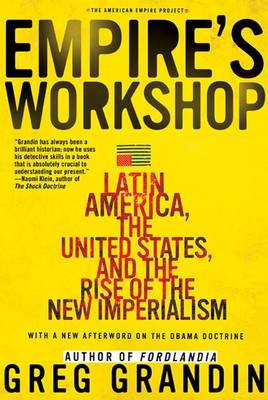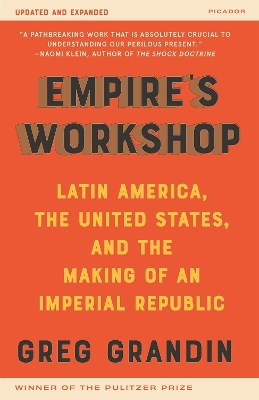American Empire Project
2 total works
Grandin has always been a brilliant historian; now he uses his detective skills in a book that is absolutely crucial to understanding our present.--Naomi Klein, author of No Logo
The British and Roman empires are often invoked as precedents to the Bush administration's aggressive foreign policy. But America's imperial identity was actually shaped much closer to home. In a brilliant excavation of long-obscured history, Empire's Workshop shows how Latin America has functioned as a proving ground for American strategies and tactics overseas. Historian Greg Grandin follows the United States' imperial operations from Jefferson's aspirations for an empire of liberty in Cuba and Spanish Florida to Reagan's support for brutally oppressive but U.S.-friendly regimes in Central America. He traces the origins of Bush's current policies back to Latin America, where many of the administration's leading lights first embraced the deployment of military power to advance free market economics and enlisted the evangelical movement in support of their ventures.
With much of Latin America now in open rebellion against U.S. domination, Grandin asks: If Washington failed to bring prosperity and democracy to Latin America--its own backyard workshop--what are the chances it will do so for the world?
This completely revised edition includes new information on the US invasion of Panama, US interventions in Cuba, Guatemala, and Chile, Plan Colombia and the War on Drugs, the Obama administration's involvement in the 2009 coup in Honduras, and the current crisis at the US-Mexico border, caused by decades of misguided Washington policies. Most provocatively, Grandin argues that the origins of many of the current threats to American democracy - disinformation, permanent surveillance, political extremism and out-of-control militarism - were foreshadowed in the United States' Central American policy.

